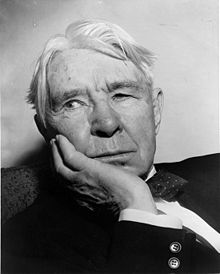Segítség a nyelvtanhoz:
* képes, tud_mondatok
* olyan, szóval, úgyhogy_mondatok
Wikipedia: Ashleigh Ellwood Brilliant (born 9 December 1933) is an author and syndicated cartoonist born in London, UK, and living in Santa Barbara, California, USA. He is best known for his Pot-Shots, single-panel illustrations with one-line humorous remarks, which began syndication in the United States of America in 1975. Brilliant achieved American citizenship in 1969.
The Wall Street Journal described
him in a 1992 profile as "history's only full time, professional
published epigrammatist."
At one time, there was some confusion
and controversy as to the ownership and recognition of his
distinctive art form. In a copyright infringement suit filed by
Brilliant, a United States federal judge ruled that while short
phrases are not eligible for copyright, Brilliant's works
were epigrams and therefore copyrightable (Brilliant v. W.
B. Productions Inc., 1979).
While Brilliant employs a self-imposed
limit of 17 words per epigram, he has actually written and published
41 with 18 words and one with 19 words (By the miracle of teaching, I
can give you some of my ability, without losing any of it myself.)
Brilliant is frequently asked about his
real last name, of which he says: As far as I know, the name
Brilliant is of Russian/Polish/Jewish origin, and is akin to other
Jewish names related to precious metals and jewels, e. g. Gold,
Silver, Diamond, Ruby, Pearl. (One meaning of brilliant is a kind of
diamond.) These in turn relate to the kinds of trades in which many
European Jews were engaged when, in the time of Napoleon, they were
first required to take surnames.















































